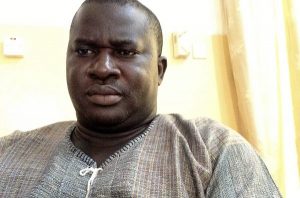By Njundu Drammeh
Citizens in one region of the country, aware of their pain and suffering, appealed to their government to build a bridge across the Banjul-Barra strip. The Government responded it would. A group of citizens, activists and defenders of human rights, on the other side argued passionately the bridge should not be built considering cost and that on the list of priorities, a bridge is at the lowest rung. Fair enou

gh.
I say the Government should build the bridge, however long it takes, if it thinks it can. That would not absolve it from fulfilling other human rights imperatives and development priorities identified in the National Development Plan. Build the bridge, construct roads, implement the NDP and respect, protect and fulfil our human rights. These imperatives are non-hierarchical but interdependent, interrelated and indivisible. The issue of “progressive realisation” does not arise because we are concerned about all rights. One development issue does not have to wait or be put in the back burner until other “more pressing” priorities are solved. There are interrelatedness and interdependence nexus.
I say build that bridge. Since the Government has made the commitment, I will hold them accountable for the fulfilment. I will hold them accountable: where they would get fund and conditions attached; how they would use; who would build; what processes and procedures and due diligence observed: how it intends to protect the environment. I would tell the region which requested for the bridge not to vote for the Government if it fails to fulfil its promise to them. These are some accountability functions of a human rights activist, but not to shoot down demands of a group of citizens.
If one is a frequent user of the ferries, one would be able to feel the pain of the people. Apart from ameliorating that pain, we would be connected to each other. Transportation of good and services would be quicker. You know the amount of time that is wasted at the terminal? And we know time is money. We know what is lost in real times?
The bridge is an ambitious plan, my friends argue. What is wrong in dreaming big? How can you achieve big things if you cannot dream big? Jack Welch argue that to be a millionaire one has only to have a millionaire’ s mind. When Nkrumah wanted to have the Akosombo dam and all, in the early 1960s when Ghana was just coming out of colonial rule, he was accused of being too ambitious and the projects waste of scarce resources. Today, we agree Nkrumah was right to have such big dreams. And the Akosombo and his projects are still serving West Africa. We are a small country and poor, but we must think very big, plan big, aspire big. There is no much beauty in smallness.
The Government plans to build the bridge between Banjul and Barra. The Bridge isn’t going to kill Banjul. The ferries didn’t because the people of Banjul only use the ferries when they want to go to the other bank. So it will be with the bridge. Banjul is not a “transit” capital and its inhabitants aren’t passengers on transit. So how would the bridge kill it? Or all its inhabitants from Nuimi and Baddibu would return home? That would free up Banju for more things.
The Government plans to build the bridge. The people should also build bridges on Facebook and in the communities. It is only in bridge building that development can take place, equity and justice can achieve and we can have symbiotic relationships. Build bridges.
